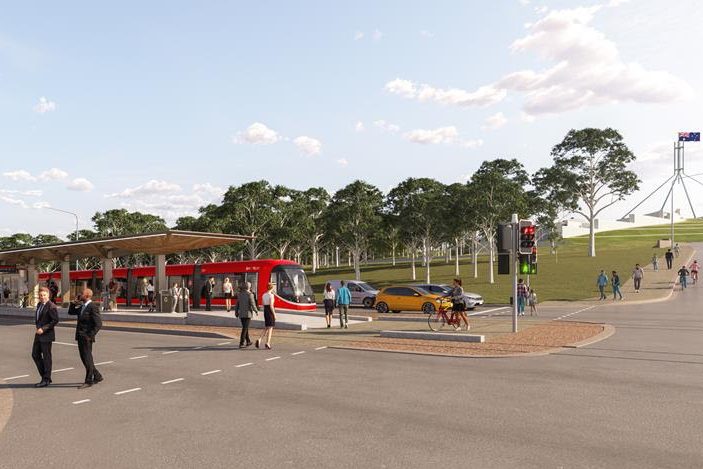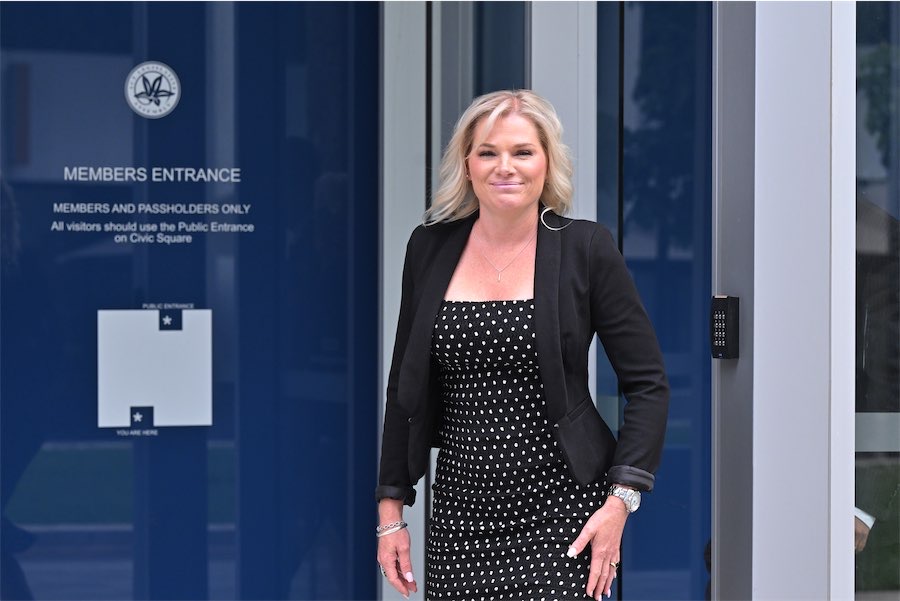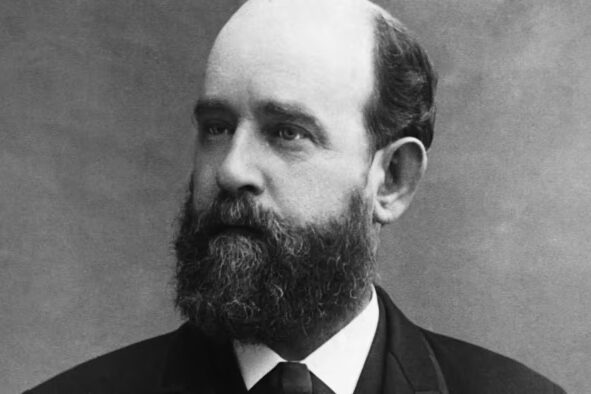I ENJOYED reading Natalie Gately’s feature on unsupervised children (“Home alone, what could possibly go wrong?” CN, January 3) but was astounded when I got to the part that suggested children, instead of not talking to strangers, to look for a “mother” with children. Really?
 What sort of parenting message is this portraying? As a father of six and the usual shopper in our family, I would be dismayed if a child in distress in a community facility could not approach me just because I am male. This is the ultimate message that this part of the article is delivering. It’s very disappointing that this message is being put out there. We’ve got to get away from the gender thing here and accept that the world has good people and bad people – the gender of these is inconsequential.
What sort of parenting message is this portraying? As a father of six and the usual shopper in our family, I would be dismayed if a child in distress in a community facility could not approach me just because I am male. This is the ultimate message that this part of the article is delivering. It’s very disappointing that this message is being put out there. We’ve got to get away from the gender thing here and accept that the world has good people and bad people – the gender of these is inconsequential.
Steve Elms, Canberra father, uncle, grandfather
IN thanking Steve Elms for his comments, author Natalie Gately, criminology courses co-ordinator at Edith Cowan University, writes:
I HAD this conversation with my husband at the time of writing and totally agree with your sentiments. However, mothers are more likely to be in places like shopping centres and parks during the school holidays than fathers as generally speaking, they do not work the same amount of hours as dads. This was not meant to be a gender issue, just statistically there are more mums at these venues at this time in school holidays. That said, the first priority is to choose someone with children (rather than a female or a male), whether that be mothers, fathers, grandparents, other caregivers, who would be sensitive to a child feeling vulnerable or unsafe.
‘Eyesores’ mar life in Weetangera
FOLLOWING on the excellent recent articles by Paul Costigan in “CityNews” about the dire state of planning in the ACT, I would like to cite a couple of examples of development that are ruining my suburb, in a similar vein to what is happening all over the city.
In Shumack Street, Weetangera, at the Belconnen Road end, one house has been knocked down and replaced by four of the ugliest apartments you could ever see. They would be hard to beat for the Eyesore-of-the-Year award in Canberra.
A little further up the street, three adjacent houses have been demolished and replaced by nine apartments in two separate developments.
Again, the visual result is most unattractive. The result of these ongoing, medium-density housing developments is detracting greatly from the amenity of this suburb. Unquestionably the same situation prevails increasingly throughout the city. The number of vehicles and traffic noise will increase commensurate with these developments. Furthermore, the footpath between these properties has been badly damaged in places.
There is no planning justification for such a massive increase in housing density along a sub-arterial road, which is not a major transport corridor.
Clearly, developers in cahoots with the government are setting the agenda and the massive increase in rates is a powerful aphrodisiac for the government.
Minister Mick Gentleman went on an expensive junket to North America last year with one of his planners; is this dreadful development the dividend the community reaps from this gross waste of taxpayers’ money?
Colin Lyons, Weetangera
Housing threat to community land
PAUL Costigan’s article on Minister Yvette Berry’s plan to build public housing on community land is timely (“Under the radar, Yvette plays housing games”, CN, January 17).
I would guarantee every targetable piece of community land has been surveyed by our so-called Labor government.
This is a government that has driven up the price of land to a level that shuts out people on moderate incomes.
It is also a government that has ruthlessly flogged off public housing units and left many homeless.
It is also a government angling for over $60 million of Federal money for asset sales.
To obtain this they have to replace the public housing they have sold. The way they have chosen to accomplish this is by building public housing on community land.
At the time when we were reluctantly forced into self government we had over 13,000 public housing units. Now we have just over 10,000.
Not surprisingly we have around 3,000 families or single people homeless or couch hopping or something in between.
I would like to think a change of government would alleviate their plight. However, every piece of legislation that has promoted sale of public housing has been supported by the Liberal Party.
Not least of which is the abolishment of third party appeals on projects in town centres.
In my opinion the only hope for the homeless is to have a cross bench of community dedicated, independent MLAs elected.
Howard Carew, Isaacs
Enough of petrol exploitation
THERE have been constant falls in the price of oil over recent months but the levels of decline in fuel prices at Canberra petrol stations have not mirrored them to any significant extent.
It is about time our do-nothing government did something about lowering the fuel prices for Canberra drivers, the costs to the wider community through higher transport charges on the products they purchase and lower disposable incomes.
We have been exploited for years by most of the petrol stations and it is time the ACT government provided incentives for independent stations to start up by providing cheaper sites, reduced rates and charges and the like in suburban areas rather than on the outskirts.
Similarly, it needs to look at imposing higher rates and charges on those stations that do not pass on savings to their customers.
The latest Liberal Party suggestion for a “fuel watch” program is next to useless. What is needed is practical government assistance to allow independent petrol retailers to operate successfully in the suburbs of Canberra. Even the threat of the government doing this might prompt the major fuel stations to address a long-term problem for Canberra consumers.
Ric Hingee, Duffy
Time for a drug commission
MY single greatest New Year fear is that the biggest life problem for the youth of today and tomorrow is not getting a good education but avoiding being sentenced without trial to life in our personal drug prisons.
The ABS reported (2017) that in 2016 there were 1808 drug-induced deaths, the highest recorded over the past 20 years – and 500 more than road deaths. Another official source (2016) told us that over eight million people in Australia had illicitly used a drug in their lifetime.
I don’t speak uninformed, having been published in the same university periodical as Dr Alex Wodak; helped the banning of cigarette advertising from television; instigated the ban on smoking in aircraft and negotiated the introduction of low-alcohol beer.
We have undoubtedly reached the time for a royal commission into what is now a drug industry rather than a strategy.
Colliss Parrett, member, Drug Watch International, Barton
Apology to Matthew Cossey
IN a letter published December 18, I falsely asserted that “a quick internet search will show” that Matthew Cossey was wrong when he stated that “not one country around the world has a ban on the use of glyphosate”. I regret misleading the readers of “CityNews” about the status of glyphosate and apologise unreservedly to Mr Cossey and acknowledge he was completely correct.
A comment based on untrue facts cannot be fair, and I accept that my comments likening Mr Cossey to apologists for tobacco were completely unfounded, unwarranted, offensive and without any basis or justification. I acknowledge that Mr Cossey has conducted himself in a professional and ethical manner in his public statements and representations on glyphosate. I also acknowledge that Australia’s own independent expert regulator, the APVMA, along with Health Canada, the US Environmental Protection Agency, and NZ’s Environmental Protection Authority, the European Food Safety Authority, Germany’s Federal Institute for risk assessment (BfR), and the European Chemicals Agency (ECHA) found unequivocally that glyphosate poses no unacceptable risks either to human health or to the environment and all concluded glyphosate is safe to use.
I apologise to Mr Cossey for the distress that my ill-informed comments have caused him.
David Hobson
Who can be trusted?
In a world of spin and confusion, there’s never been a more important time to support independent journalism in Canberra.
If you trust our work online and want to enforce the power of independent voices, I invite you to make a small contribution.
Every dollar of support is invested back into our journalism to help keep citynews.com.au strong and free.
Thank you,
Ian Meikle, editor




Leave a Reply